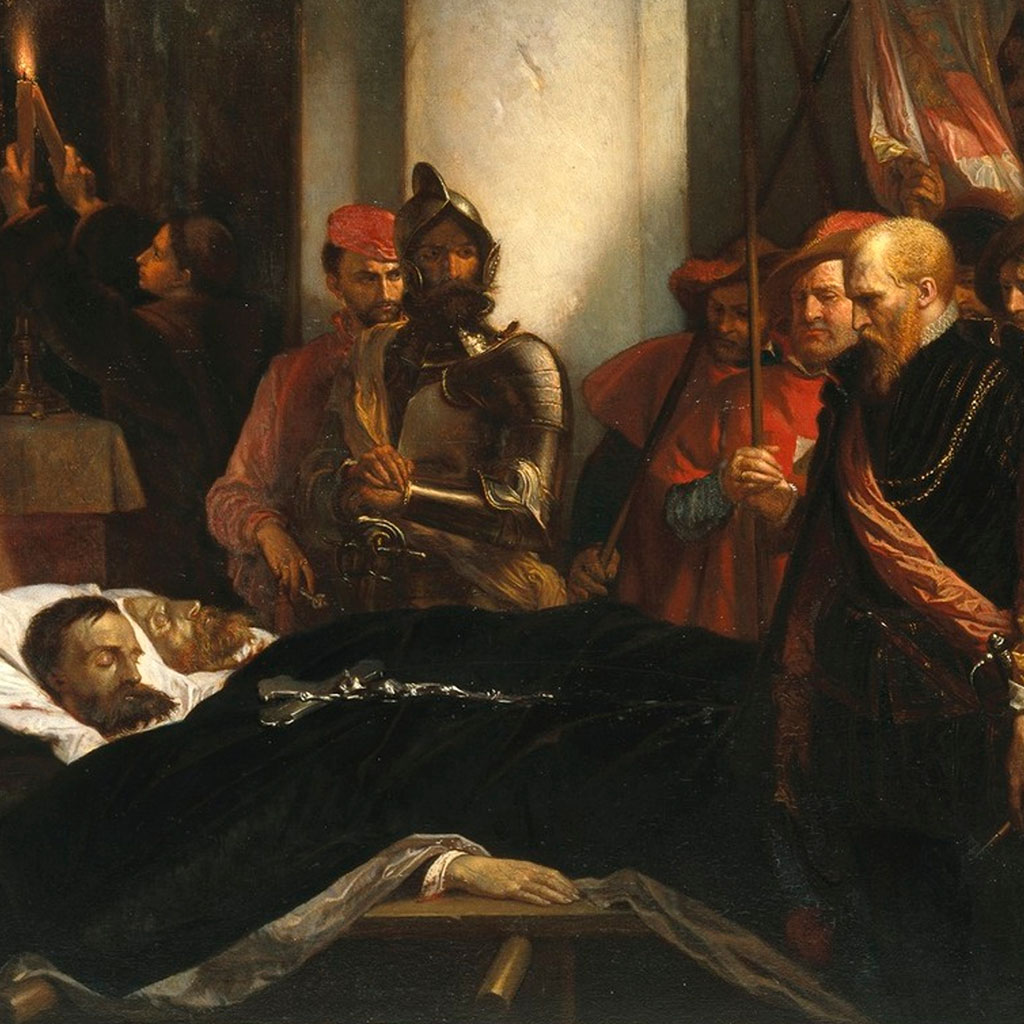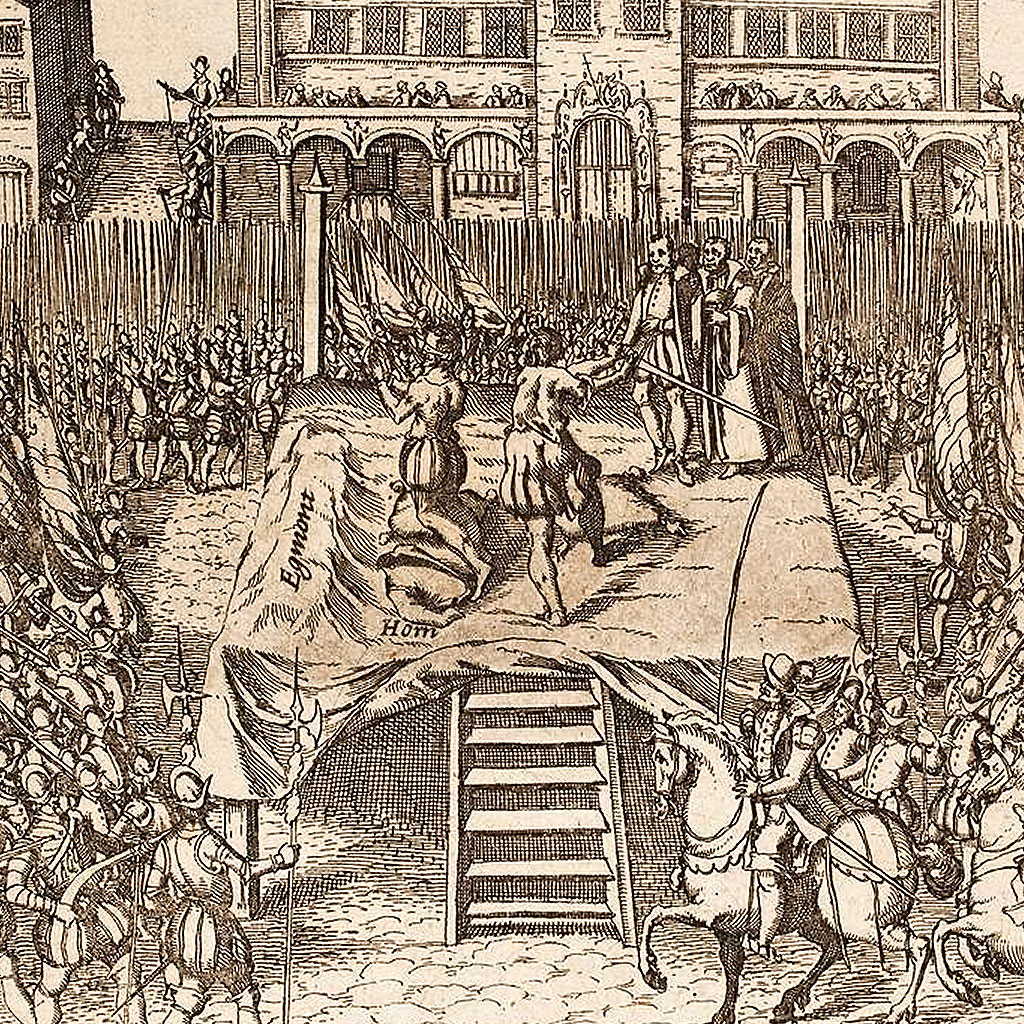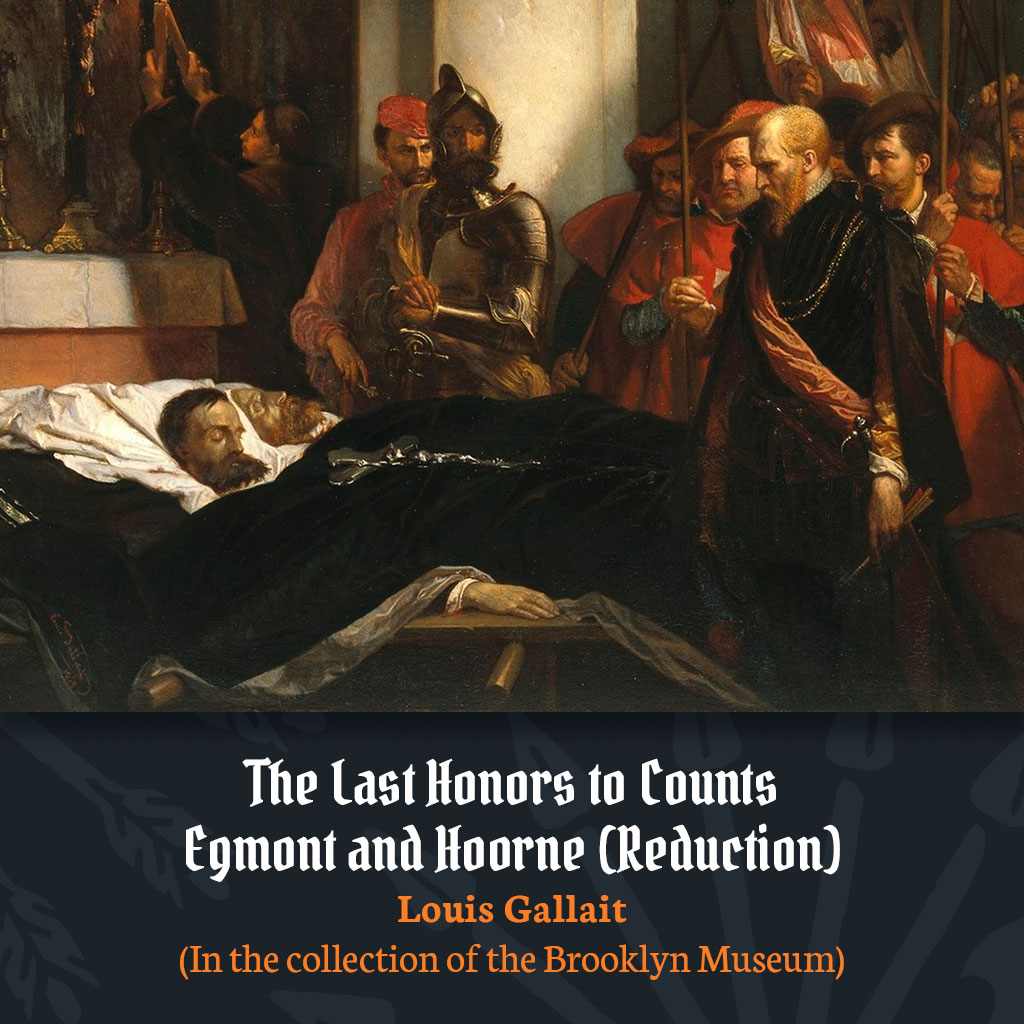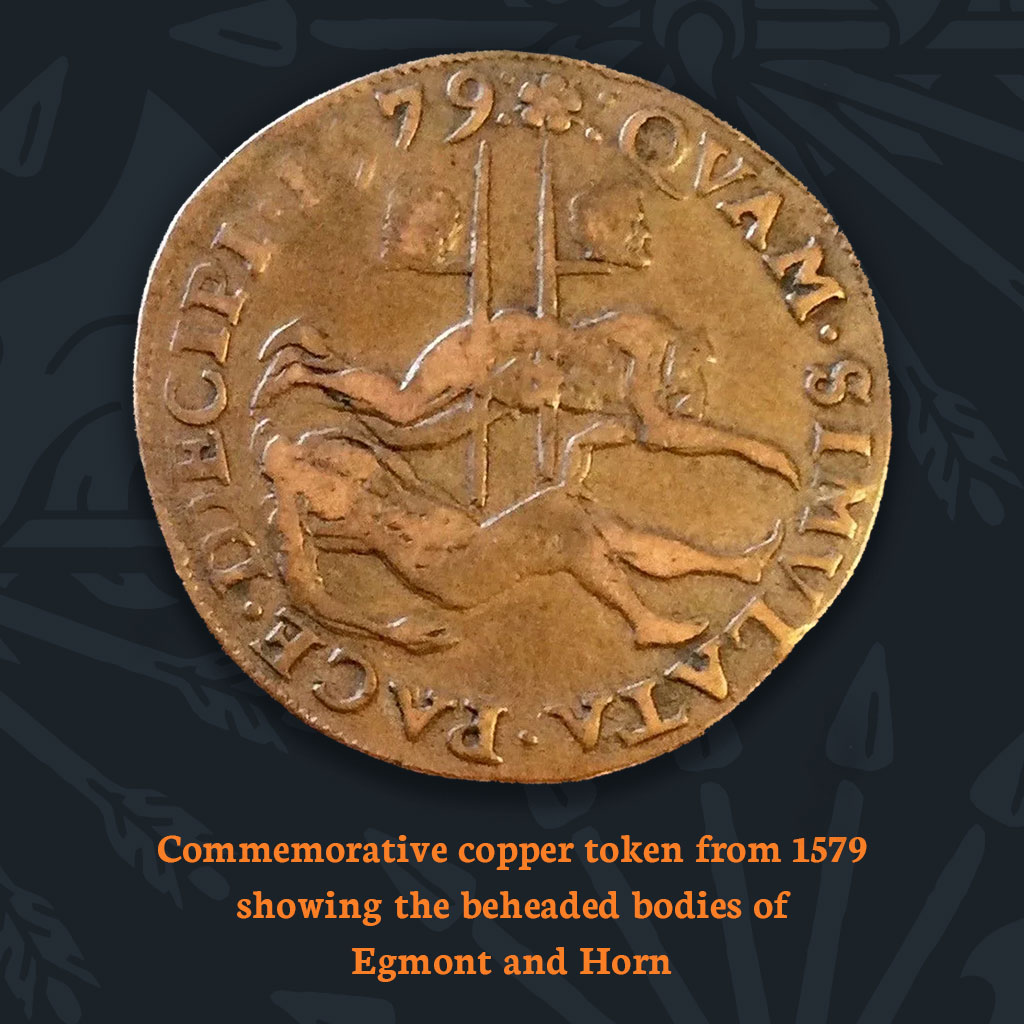
Kindling for War: The Executions and Legacy of the Counts of Egmont and Hoorne
☠️ On a summer morning in June 1568, Brussels’ Grand Place was shrouded in tense silence. The air was thick with dread as two of the most powerful noblemen in the land were marched through a wall of heavily armed soldiers.
⚔️ Ascending the scaffold, the two were met by priests, officials… and a greatsword-wielding executioner. Political tensions were already high, and the crowd watched in fear, abuzz with uncertain whispers as the sword came down and the men were beheaded.

🤴 Lamoral, Count of Egmont (1522-1568), and Philip de Montmorency, Count of Hoorne (1524-1568), were leading nobles in the Habsburg government which ruled the Low Countries of this era. Both served with distinction under Charles V and his son, the current king, Philip II.
📜 Tensions rose as Philip II alienated both the nobles and the towns of the Low Countries. As loyal members of Philip’s Council of State, Egmont, Hoorne, and William of Orange attempted to moderate the king’s harsh religious and governmental policies.
🍽️ As dissent grew in the wake of religious riots in 1566, Philip II saw Egmont, Hoorne, and Orange as threats. The king appointed the Duke of Alba as his new governor. Arriving in August 1566 at the head of an army, Alba soon invited all three to a cordial dinner.
🔒 This was certainly a ruse. William of Orange saw it as such and promptly left for his family’s estates in the Rhineland. Egmont and Hoorne assumed good faith, thought the optics better to attend, and so arrived… only to be arrested.
⚖️ Despite their previous service, loyalty and Catholic faith, Egmont and Horn were found guilty of treason and heresy. On June 5, 1568, they were publicly beheaded, a shocking act that only fanned the burgeoning flames of revolt in the Low Countries.

🔥 Their executions had profound effects. Egmont and Horn became martyrs for the Dutch cause, their deaths fueling rebellion. Rebel propaganda celebrated them as heroes, symbolizing resistance against Spanish tyranny.

🏛️ In the years to come, Egmont and Horn became martyrs in the eyes of Dutch rebels fighting for independence. Heaps of bric-a-brac was produced with their likeness: tokens, prints, and more. All propaganda in the fight against Habsburg governance and the threat of Inquisition.
For More:
📖 Mytho-Poetics at Work: A Study of the Figure of Egmont, the Dutch Revolt and its Influence in Europe, by Rengenier C. Rittersma, Brill Publishing:
https://amzn.to/3XX060b
🤔 William of Orange famously fled before being arrested. Egmont and Hoorne thought it best to stay. How would you have responded? Share your thoughts!
